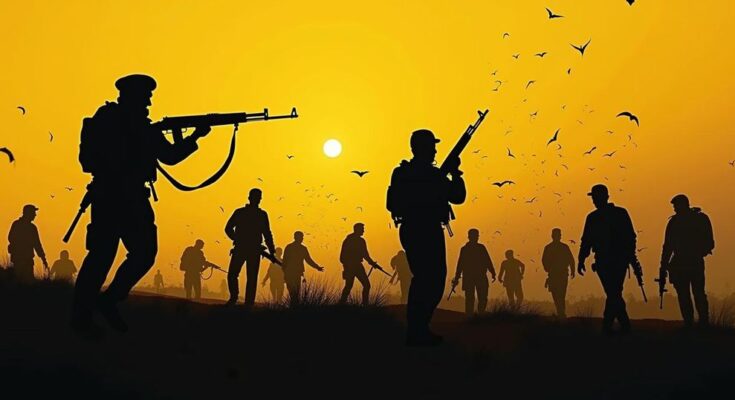Hassan Nasrallah’s assassination has left Hezbollah leaderless and in turmoil, prompting urgent decisions from both Hezbollah and Iran on whether to retaliate against Israel or withdraw. As the conflict escalates, the implications of his death may alter regional dynamics and Hezbollah’s standing within Lebanon.
The death of Hassan Nasrallah marks a significant turning point in the ongoing conflict in the Middle East, following a series of Israeli strikes that successfully targeted him in southern Beirut. With Nasrallah at the helm for nearly two decades, he transformed Hezbollah into a formidable military force, heavily backed by Iranian resources, and solidified his stature as a key figure in anti-Israel resistance. His assassination raises profound questions for both Hezbollah and Iran regarding their future strategies. The group is now leaderless and faces considerable internal disruption as it assesses the overwhelming Israeli military actions earlier this month. During Nasrallah’s tenure, Hezbollah evolved into one of the most heavily armed non-state entities globally, with extensive capabilities that include a robust arsenal and substantial man-power. While Israel has successfully eliminated him, the immediate and long-term repercussions remain uncertain. With the command structure of Hezbollah significantly compromised, its potential response to his death may take time to formulate. Yet, speculation suggests a retaliatory missile strike against Israel, likely targeting major urban areas such as Tel Aviv. The landscape in Lebanon has shifted, and with Hezbollah’s stature diminishing among Lebanese citizens, there may emerge opportunities for more moderate influences to assert themselves. Furthermore, the relationship between Iran and Hezbollah may be tested, as Tehran must decide whether to escalate its involvement or recalibrate its strategies following Nasrallah’s demise. The decision choices ahead for both parties could have extensive implications for the balance of power in the region, along with threats to Iran’s nuclear ambitions Israel, for its part, may contemplate a ground invasion of southern Lebanon—a venture fraught with significant risks given Hezbollah’s extensive underground networks and remaining combatants. Ultimately, the regional dynamics are complex, and the ongoing situation remains volatile with no clear resolution in sight.
The death of Hassan Nasrallah represents a conclusively pivotal moment for Hezbollah and Iran, reshaping the conflict landscape of the Middle East, particularly between Hezbollah and Israel. Nasrallah’s leadership contributed to Hezbollah’s political and military strength, elevating its role as both a paramilitary organization and a significant political force in Lebanon. His assassination disrupts the existing balance and forces both Hezbollah and Iran to reconsider their strategies in light of the intensifying Israeli offensive, which had previously aimed at destabilizing Hezbollah by targeting its senior commanders.
In summary, the assassination of Hassan Nasrallah has left Hezbollah in a state of disarray, compelling both the organization and Iran to evaluate their next steps amid ongoing Israeli military pressure. Decisions made in the wake of this event will not only affect Hezbollah’s operational capabilities and influence within Lebanon but may also alter the regional power dynamics for years to come. The potential for retaliation exists, yet the pathways available to them present both opportunities and significant risks.
Original Source: news.sky.com




